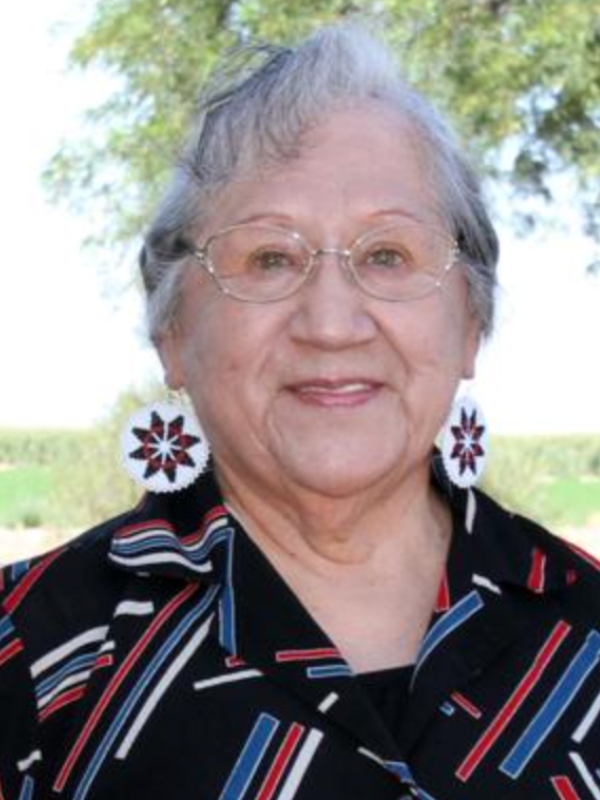Leona Carlyle-Kakar, a prominent member of the Ak-Chin Indian Community, has passed on to the spirit world. She was instrumental in securing one of the most substantial water settlements for Indian Country and spurring the economic development of her tribe.

Carlyle-Kakar died on Sunday, April 14, 2024. She was 88 years old.
Carlyle-Kakar was born on the Ak-Chin Reservation on March 29, 1936 in Casa Grande, Ariz. After earning her GED in 1965, she served on the Ak-Chin tribal council for 40 years. During that time, she served as council secretary, council member, vice chairman, and the council’s first-ever female chairman.
As well, she served as the Ak-Chin Farm Board Chairman from 1965 until she retired in 2016 at age 80.
Carlyle-Kakar and her brothers were instrumental in organizing the Ak-Chin community. While working at a grocery store in the 1950s, the siblings noticed that farmers who were leasing tribal land were earning revenue while the Ak-Chin community remained in poverty.
In 2016, she told the Maricopa Monitor that she and her brothers held a community meeting in the shade of a tree in a large field to pitch their idea of organizing and farming their land.
“We got people together and told them they would have jobs and the community would be better off if we did this,” she said. “We knew we could make money, but the (Bureau of Indian Affairs) said it would never work.”
The tribal community was organized in 1961, and farming began soon after without assistance from the BIA. Her efforts helped the Ak-Chin Indian Community’s farming enterprise grow from 4,000 acres to more than 15,000, making it one of the largest farming communities in the U.S.
Carlyle-Kakar was known to many as “Miss Water Rights” for her work doggedly engineering Indian Country’s first water rights settlement with the federal government.
In the late 1960s, Carlyle-Kakar flew to Washington, D.C., for the first time to advocate for her tribe’s water rights. Nearly a decade and many trips later, she was successful in securing the Ak-Chin Indian Water Rights Settlement Act of 1984
“I guess farming is my baby,” Carlyle-Kakar told Site Selection Magazine in 2012.
Carlyle-Kakar is also credited with taking part in the opening of the tribe’s Harrah’s Ak-Chin Casino in 1994.
In 2018, she was honored with a lifetime achievement award by Pinal 40, a non-profit in Pinal County, Ariz., supporting youth, education, and agriculture.
Ak-Chin Chairman Robert Miguel told the Maricopa Monitor today that Carlyle-Kakar's efforts have made the community what it is today.
“As we see the structures that are up in our community, the homes and just the different resources that we live by — that’s Leona Kakar,” Miguel said. “I consider her as the greatest leader the Ak-Chin Community’s ever had in spearheading our cause for water rights and what we’ve been able to do as a community. We’ve become who we are today because of her as far as a prosperous and great farming community and enterprise.”
More Stories Like This
Native News Weekly (August 25, 2024): D.C. BriefsUS Presidents in Their Own Words Concerning American Indians
Indigenous Actor Elaine Miles Reports Detention by Alleged ICE Agents
Happy Thanksgiving from Native News Online
Coming Up on Native Bidaské: Behind the Animation: Joey Clift Talks “Pow” and Native Storytelling
Help us tell the stories that could save Native languages and food traditions
At a critical moment for Indian Country, Native News Online is embarking on our most ambitious reporting project yet: "Cultivating Culture," a three-year investigation into two forces shaping Native community survival—food sovereignty and language revitalization.
The devastating impact of COVID-19 accelerated the loss of Native elders and with them, irreplaceable cultural knowledge. Yet across tribal communities, innovative leaders are fighting back, reclaiming traditional food systems and breathing new life into Native languages. These aren't just cultural preservation efforts—they're powerful pathways to community health, healing, and resilience.
Our dedicated reporting team will spend three years documenting these stories through on-the-ground reporting in 18 tribal communities, producing over 200 in-depth stories, 18 podcast episodes, and multimedia content that amplifies Indigenous voices. We'll show policymakers, funders, and allies how cultural restoration directly impacts physical and mental wellness while celebrating successful models of sovereignty and self-determination.
This isn't corporate media parachuting into Indian Country for a quick story. This is sustained, relationship-based journalism by Native reporters who understand these communities. It's "Warrior Journalism"—fearless reporting that serves the 5.5 million readers who depend on us for news that mainstream media often ignores.
We need your help right now. While we've secured partial funding, we're still $450,000 short of our three-year budget. Our immediate goal is $25,000 this month to keep this critical work moving forward—funding reporter salaries, travel to remote communities, photography, and the deep reporting these stories deserve.
Every dollar directly supports Indigenous journalists telling Indigenous stories. Whether it's $5 or $50, your contribution ensures these vital narratives of resilience, innovation, and hope don't disappear into silence.
 The stakes couldn't be higher. Native languages are being lost at an alarming rate. Food insecurity plagues many tribal communities. But solutions are emerging, and these stories need to be told.
The stakes couldn't be higher. Native languages are being lost at an alarming rate. Food insecurity plagues many tribal communities. But solutions are emerging, and these stories need to be told.
Support independent Native journalism. Fund the stories that matter.
Levi Rickert (Potawatomi), Editor & Publisher

